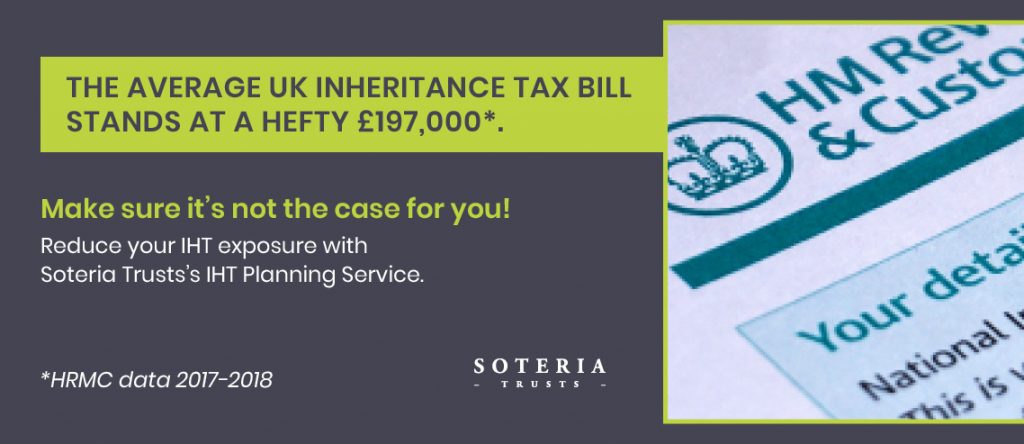Why are residence and domicile important?

Please be advised that the information in this article regarding QNUPS and IHT is no longer accurate due to the recent changes announced in the UK Budget. Starting in April 2025, the regulations will have significant implications that may affect your understanding of these topics. We encourage you to stay informed and consult with a Soteria Trusts expert to navigate these changes effectively.
Your tax residence status and domicile status affect the extent to which you are liable to tax. There is a difference between your country of domicile and your residence, especially if you are an expat. Many expats go through life not knowing what domicile is, or they assume that they are domiciled in the place where they live. It actually may be the case that you have chosen an alternate domicile to that of your original country. However, if you have not properly established this in that country, your heirs may have a rude awakening when you are no longer around to fight otherwise. Residence and domicile are important for income tax purposes, but also inheritance taxes.
The difference between Residence and Domicile
The legal dictionary definition of domicile says: “the place where an individual has a fixed and permanent home for legal purposes; also called legal residence.” So it would follow logically that wherever you live becomes your domicile. However, your domicile is set when you are born and follows that of your father. Domicile legally designates the country of law to determine legal issues such as the ability to invoke the jurisdiction of a court in respect of you as an individual. Domicile is the place you intend to make your permanent home, the place to which you intend to return if you are temporarily residing in another state.
Contrast this with your residence. There is a distinct difference in the legal dictionary definition of residence as opposed to domicile. A residence is a short-term concept and is determined for each tax year in isolation, reflecting where you reside. So, there is a distinction.
The fact is that you inherit your domicile at birth from your father and where you are born. Whilst you are resident outside your country of origin, you are often tax-exempt on income generated or capital gains outside that country. However, when you die, inheritance tax (IHT) is often assessable on your estate’s worldwide assets in your country of domicile.
So what does this have to do with being an expat? The answer is that there can be significant far-reaching effects on your future tax situation if you ignore things and assume that where you are living as an expat, is your domicile. Your country of domicile will determine where death duties, or inheritance tax (IHT), eventually become assessable and payable.

Why are residence and domicile important?
When you distinguish your domicile from your country of residence, there is frequently a difference in how taxation is applied to you. Quite often, when we are resident in another country as an expat we are obliged to pay taxes on any income generated within that jurisdiction. It is also often the case that we are exempt from taxes on any capital gains or income generated in both our country of domicile and our country of residence. This is where, as expats, we often have a significant advantage over those who are residents in their country of domicile.
Related: Double Taxation Agreements in Hong Kong
The major exception is America, where tax is payable on worldwide income in the USA no matter where you are resident in the world. The only way to legally avoid US tax is to revoke American citizenship and adopt an alternative country as a citizen.
As an Australian, you will be exempt from tax on income generated outside Australia whilst you are resident elsewhere for more than a year. Many other countries adopt a very similar set of rules. British nationals are also exempt from tax on income generated outside the UK when they are residing abroad for a year or more.
No matter what your nationality it is very wise for you to check with a professional adviser on your own individual tax status before you rely on assumptions. You will then glean the obligations you have to comply with in order to qualify for an exemption on your income tax.
Domicile, residence and IHT
The areas that most expats trip over are those which relate to death duties or inheritance taxes (IHT). These vary quite significantly from one country to another. Sometimes the thresholds for IHT are high, and the majority of estates will be valued below the total at which tax commences.
The USA has complex IHT rules and depends on your history. For most domiciled US citizens, the threshold is quite high, and the rates of tax are relatively low. However, if you have ever been resident in the USA and have assets there as a non-resident and non-domiciled person, tax starts at almost the initial value and can be significant.
There is no IHT in Australia, so this is not such a significant factor. In other European countries, the laws vary from place to place. In The Netherlands, for example, IHT is not so high. However, once you have been resident outside Holland for at least ten years, you are considered non-domiciled for IHT purposes. In Italy, there are gift taxes that start at low levels but are very low rates and make tax levels for domiciled individual estates rather more palatable.
Canada is a little more complex in that it taxes an individual at death rather than his residual estate. Therefore his domicile is not as relevant. It is more a question of their resident status at death and the nature of the assets making up the estate.

UK IHT rules
The British expat’s estate is usually burdened with a relatively high level of IHT. Tax is payable on the entire value of the worldwide estate. There is a nil rate band, meaning that tax is at 0% on the first £325,000 per person or £650,000 for a couple upon death, and this is applicable to everyone. However, all asset values above that are taxed at a flat rate of 40%.
If you consider the fact that IHT will be assessable on your worldwide assets at death, it often comes as quite a shock to many British expats that they will leave a great deal less to their heirs than they had envisaged. Note that any assets within the UK will actually be assessable whether you are domiciled there or not.
Typically foreign nationals living in the UK are non-domiciled residents in UK. While they are not taxed in the UK on their international income and assets, everyone with UK-sited assets is taxed by the HMRC. It does not matter what their domicile or residency is. However, if you remain resident in the UK for 15 of the last 20 tax years you will automatically be deemed as UK domiciled by HMRC. This was a change in the tax laws implemented in 2017.
Can I change my domicile?
Your original domicile stays with you for life unless you make definite moves to change it by electing a new domicile of choice. To do this, it is not really a question of just making a statement to that effect. You will actually need to persuade the relevant tax authorities that you really have changed your domicile. In order to achieve this, you will need to tick many boxes to comply with what is considered a qualification of compliance with non-domicile.
For example, how long have you lived in your current country of residence? Are you married to a local there? Do you own the property in which you live? How often and for what reasons do you visit your domicile country? Do you have any connections in that country through club memberships, subscriptions, property available to you for visits, bank accounts, private pensions, memberships of associations or any other related affiliations?
Until you have severed all of these, you are not going to be considered as having changed your domicile to the new country of residence.
Related: Probate and Domicile
Can a UK citizen become non-domiciled?
Some UK citizens chose to become non-domiciled, and by doing so their estate would not be subject to IHT on non-UK assets. However, there are specific rules about how a UK citizen can become non-domiciled, such as leaving the UK for at least six full tax years. Once you establish a domicile of choice in a specific country and then you move your residence to another country, for example from Hong Kong to Thailand, the six-year rule will have to be applied for your next country of residence from scratch.
| Domiciled, non-domiciled: What are my options? |
As you can see, this is a complex matter and requires careful planning and action to ensure you do the right thing. But, for many, it is a well worthwhile exercise to consider and then go through.
Your first stop will need to be with a professional adviser who can help you assess your situation and talk you through the pitfalls along the way.
While Soteria Trusts specializes in advising UK nationals and foreign nationals with UK assets to help them mitigate taxes, especially IHT and property-related taxes such as SDLT, we are able to help other nationals with their international tax planning. One such service is skilful and knowledgeable Retirement Planning which uses the power of Double Taxation Agreements, Trusts Accounts, Wills and Estate Planning.
This article has been written by Andrew Wood, Managing Director of Business Class UK – the sole distributor of Soteria Trusts services in the United Kingdom.
Connect with him on LinkedIn: https://www.linkedin.com/in/andrewwoodbca